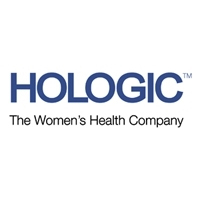
A good summary of reaction
to mammo suggestions
On November 16th, the U.S. Preventive Services Task Force (USPSTF), an independent panel of doctors and scientists that make recommendations to the U.S. Department of Health and Human Services, announced a change to their mammography screening guidelines. The new guidelines recommended several changes but the most controversial change was that screening mammograms be taken every 2 years for women age 50-74 versus their old guidelines which recommended screening mammograms every 1-2 years starting at age 40.
Within hours of the release of the controversial guidelines, many parties including Hologic reiterated their position and commented in the press that they are not in support of these new guidelines. The position of three organizations stands out.
In a press release, The American Cancer Society reiterated their position of continuing to recommend annual screening using mammography and clinical breast examination for all women beginning at age 40. The ACS release noted that "Our experts make this recommendation having reviewed virtually all the same data reviewed by the USPSTF, but also additional data that the USPSTF did not consider... the lifesaving benefits of screening outweigh any potential harms."
Carol H. Lee, M.D., chair of the American College of Radiology Breast Imaging Commission speaking for the ACR said that "If cost-cutting U.S. Preventive Services Task Force (USPSTF) mammography recommendations are adopted as policy, two decades of decline in breast cancer mortality could be reversed and countless American women may die needlessly from breast cancer each year."
Dr. Lee went on to say that "These unfounded USPSTF recommendations ignore the valid scientific data and place a great many women at risk of dying unnecessarily from a disease that we have made significant headway against over the past 20 years. Mammography is not a perfect test, but it has unquestionably been shown to save lives -- including in women aged 40-49. These new recommendations seem to reflect a conscious decision to ration care. If Medicare and private insurers adopt these incredibly flawed USPSTF recommendations as a rationale for refusing women coverage of these life-saving exams, it could have deadly effects for American women."
Additionally, Kathleen Sebelius, the Secretary of the U.S. Department of Health and Human Services withheld support for the Taskforce's recommendations. "There is no question that the U.S. Preventive Services Task Force Recommendations have caused a great deal of confusion and worry among women and their families across this country. I want to address that confusion head on. The U.S. Preventive Task Force is an outside independent panel of doctors and scientists who make recommendations. They do not set federal policy and they don't determine what services are covered by the federal government."

